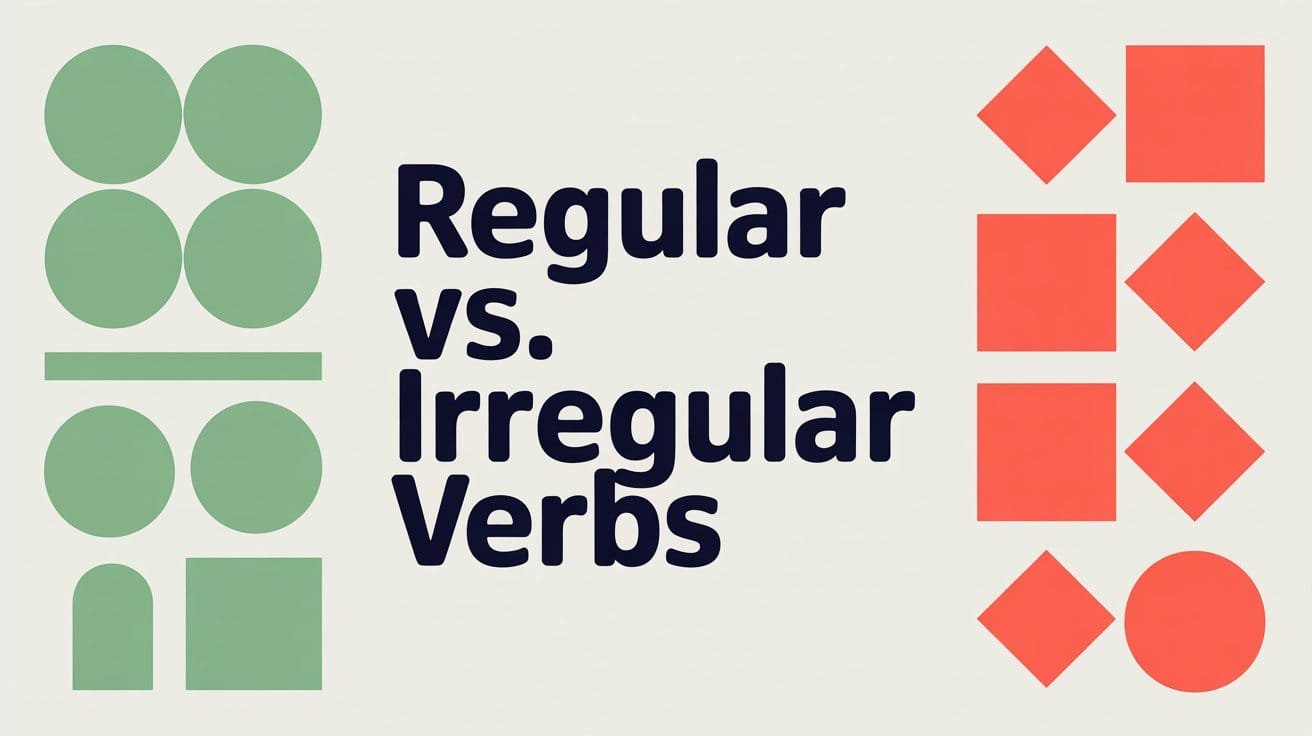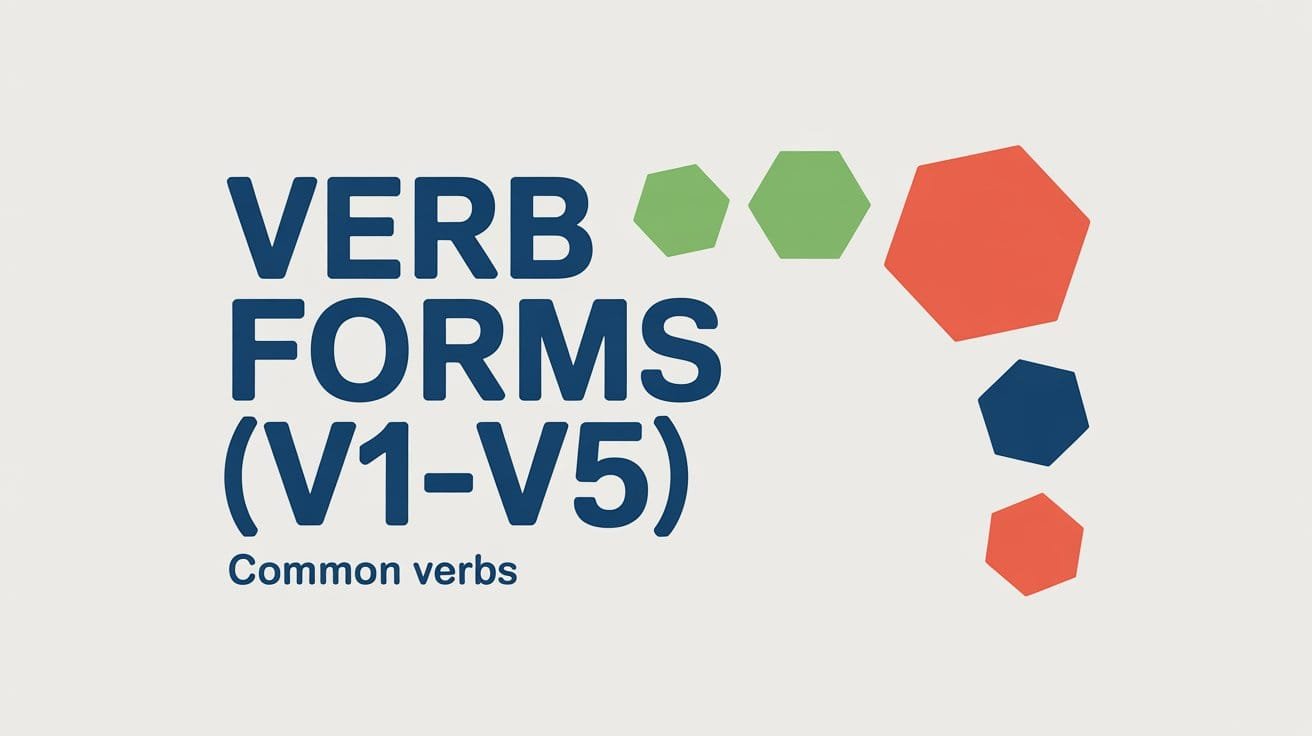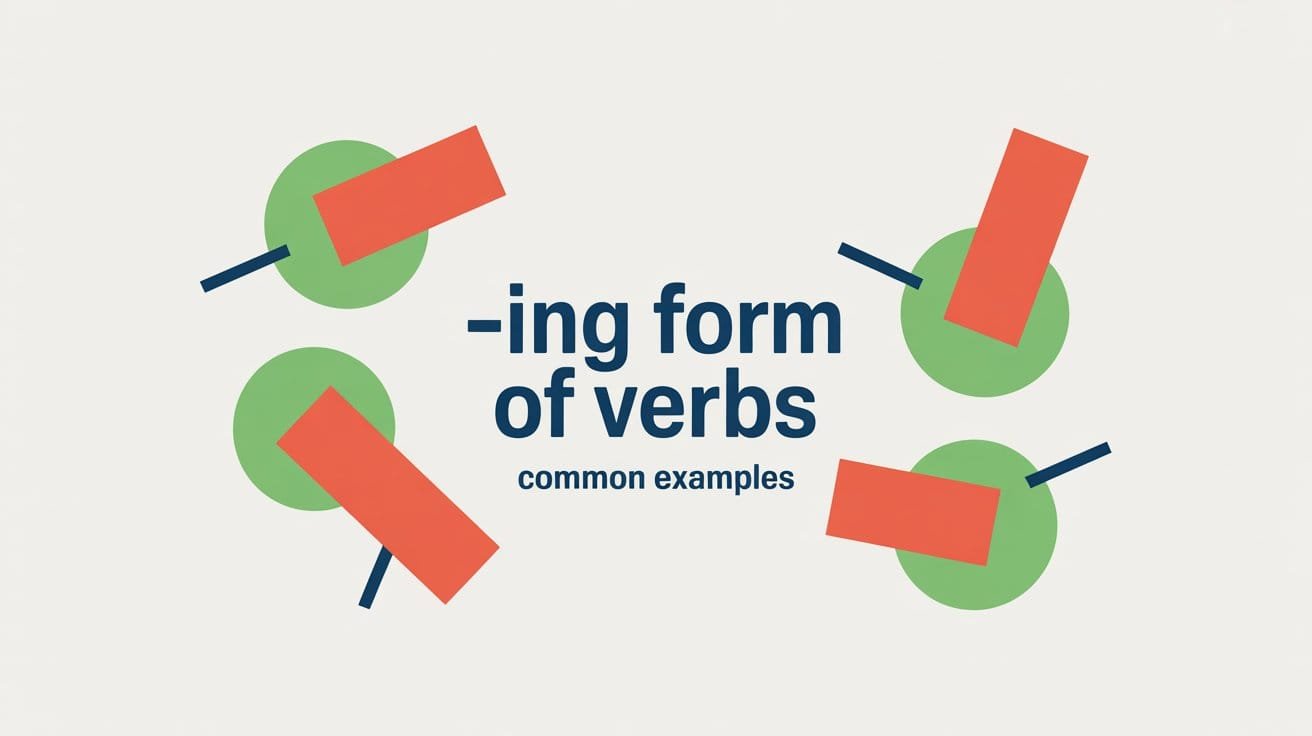Verbs are at the heart of English grammar, but their different forms can be tricky for learners to master. One of the first challenges is knowing whether a verb is regular or irregular. Regular verbs follow predictable spelling rules when forming their past tense, while irregular verbs do not.
Understanding how these two groups work will help you write and speak more accurately. This guide will break down the patterns, show helpful examples, and explain how to spot the difference between regular and irregular verbs in everyday English.
What Are Regular Verbs?
Regular verbs follow a predictable pattern when forming the past tense and past participle: they simply add -ed (or sometimes -d) to the base form. These verbs do not change their spelling in unexpected ways, making them easier to learn and remember.
For example:
- walk → walked → walked
- open → opened → opened
- talk → talked → talked
There are a few spelling rules to watch for:
- If the verb ends with -e, just add -d:
- love → loved
- If the verb ends with a consonant + y, change the y to i and add -ed:
- carry → carried
- If the verb is short with a consonant-vowel-consonant ending, double the last consonant before adding -ed:
- plan → planned
Regular verbs are consistent, making them straightforward once you learn the rules.
What Are Irregular Verbs?
Irregular verbs do not follow the standard -ed pattern to form their past tense or past participle. Instead, their forms change in ways that often need to be memorized. These unpredictable patterns come from the history of the English language and its older roots.
For example:
- go → went → gone
- take → took → taken
- see → saw → seen
Irregular verbs are among the most common verbs in English, which is why they appear so frequently in conversation and writing. Although there is no single rule to predict their forms, practice, and exposure help you recognize them faster.
Remember, irregular verbs still follow English grammar rules for subject-verb agreement — their only difference is how their tense forms change.
Regular vs. Irregular Verbs: Key Differences
Regular and irregular verbs are both essential in English, but they behave differently when you change their tense. Here’s how they compare:
- Regular verbs add -ed (or -d) to form their past tense and past participle.
- play → played → played
- call → called → called
- Irregular verbs change forms in unpredictable ways, with no standard ending.
- eat → ate → eaten
- write → wrote → written
A quick way to tell them apart is to look at the past tense:
- If it ends in -ed, it is likely regular.
- If it changes completely or follows no pattern, it is irregular.
Quick Comparison Table
| Feature | Regular Verbs | Irregular Verbs |
|---|---|---|
| Past tense rule | Add -ed | No consistent pattern |
| Easy to predict? | Yes | No |
| Example | talk → talked | go → went |
| Spelling patterns | Follows spelling rules | Must be memorized |
Common Regular Verbs List
Below is a list of 20 common regular verbs you’ll see in everyday English. Each follows the standard -ed pattern to form the past tense and past participle:
| Base Form | Past Simple | Past Participle |
|---|---|---|
| work | worked | worked |
| clean | cleaned | cleaned |
| call | called | called |
| ask | asked | asked |
| help | helped | helped |
| open | opened | opened |
| play | played | played |
| wait | waited | waited |
| start | started | started |
| talk | talked | talked |
| close | closed | closed |
| love | loved | loved |
| jump | jumped | jumped |
| carry | carried | carried |
| finish | finished | finished |
| watch | watched | watched |
| answer | answered | answered |
| plan | planned | planned |
| enjoy | enjoyed | enjoyed |
| walk | walked | walked |
Common Irregular Verbs List
Below is a list of 20 high-frequency irregular verbs you’ll often see in both spoken and written English. These verbs do not follow the standard -ed pattern, so they need to be memorized:
| Base Form | Past Simple | Past Participle |
|---|---|---|
| go | went | gone |
| see | saw | seen |
| take | took | taken |
| come | came | come |
| give | gave | given |
| find | found | found |
| know | knew | known |
| think | thought | thought |
| write | wrote | written |
| speak | spoke | spoken |
| break | broke | broken |
| choose | chose | chosen |
| drink | drank | drunk |
| eat | ate | eaten |
| forget | forgot | forgotten |
| grow | grew | grown |
| have | had | had |
| hold | held | held |
| make | made | made |
| run | ran | run |
Tips for Learning Verb Patterns
Learning regular and irregular verbs takes practice, but these tips can make the process easier:
- Group similar verbs: Organize verbs with similar patterns together. For example,
- begin → began → begun
- drink → drank → drunk
These both change i → a → u, which makes them easier to memorize as a group.
- Use verb tables: Keep a personal table of verbs you often use. Seeing them side by side helps fix the forms in memory.
- Example: go → went → gone, come → came → come
- Practice in context: Write simple sentences to reinforce what you learn.
- Yesterday, I wrote a letter.
- They played basketball after school.
- Test yourself: Cover the past forms and see if you can recall them.
- Try writing the base form eat → ? (ate, eaten)
- Repeat often: Review a small list each day instead of trying to memorize them all at once. Repetition over time helps them stick.
FAQs About Regular and Irregular Verbs
Can a verb be both regular and irregular?
No, a single verb cannot be both regular and irregular at the same time. However, some verbs may have alternative forms in informal or older English (for example, learned vs. learnt), but generally verbs are classified as one or the other.
Why are there so many irregular verbs in English?
Irregular verbs come from older patterns of the English language and its Germanic roots. Over time, these patterns stayed even though other verbs became regular with the -ed ending.
How many irregular verbs are there in English?
There are around 200 commonly used irregular verbs in English, but you’ll use a core group of about 50 very frequently.
Is it okay to only use regular verbs?
You can’t avoid irregular verbs because they are very common (like go, have, come), so learning them is necessary for clear, correct English.



